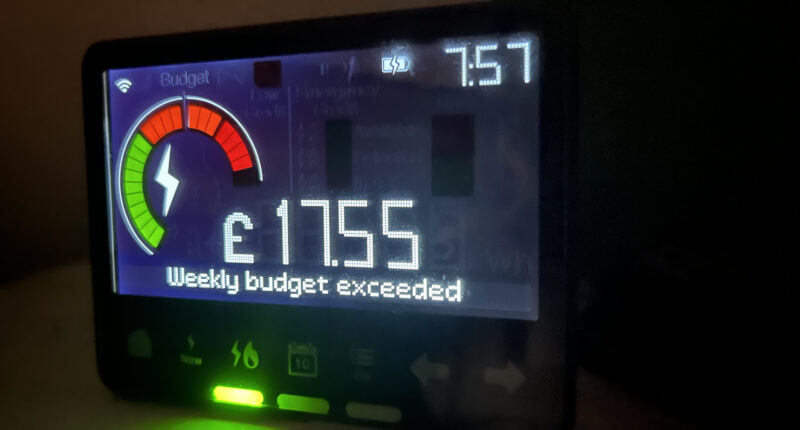MORE than 350,000 households with smart meters have been switched to more expensive tariffs.
Figures from Ofgem show the meters were remotely switched to repay debt between 2017 and 2023.
The number of remote switches rose in the five years leading up to 2021 but dropped 60% in 2022 to 58,977 from over 152,000 the year before, as first reported by The Telegraph.
This comes as the energy regulator is set to bring in new rules that set a minimum standard to limit when firms can forcibly change a customer’s tariff.
In February, ahead of updating its code of practice, Ofgem imposed a temporary ban on forced switches, under which suppliers will be required to make at least 10 attempts to contact a customer and conduct a welfare visit before switching them.
Ofgem made these changes after an undercover investigation by the Times revealed that third-party firm Arvato Financial Solutions was breaking into people’s homes to “force-fit” pay-as-you-go meters on behalf of British Gas.


This was despite signs that children and disabled people were living on the premises.
The investigation, in February, also resulted in British Gas halting the use of warrants to force entry into customers’ homes.
An Ofgem spokesperson said: “Protecting consumers is our top priority which is why we brought in a Code of Practice on prepayment meter (PPM) earlier this year- signed up to by all energy suppliers.
“This is currently being enshrined into licensing rules and regulations.
Most read in Money
“Even before this, a voluntary pause on forced PPMs was already in place, and, as we said when we announced the Code of Practice, where this is not being adhered to by companies, we will always take the necessary action.”
Energy providers have received criticism for using smart meters to remotely force customers who are already struggling onto more costly prepayment meters.
This remote practice avoids the need for a warrant, which would be required if they were to enter a home and install one.
Some campaigners are calling on the Government to outlaw the practice altogether.
Joe Cox, senior policy officer at Debt Justice, said: “It’s shameful that pre-pay is being touted as the main option for dealing with energy debt – it’s more expensive and increases risk of disconnection.
“The government needs to pause energy debt enforcement, write down the unpayable debt and reform the energy system to ensure everyone has access to the energy they need.”
What are your rights?
In the first instance, you do not have to accept a smart meter if you do not want one.
If your supplier says otherwise then you can contact the Citizens Advice consumer helpline.
It is sometimes the case that cheaper tariffs offered by suppliers are only available to customers with smart meters.
Therefore by refusing you might find it hard to access all tariffs offered by your supplier.
An energy supplier must follow the rules set by Ofgem before remotely changing you to prepayment or switching you:
- They must attempt to contact you 10 times by either writing to you, calling on the phone or emailing.
- Give you seven working days’ notice before switching you.
- Visit your home to check it is safe and practical.
- Offer you other ways to replay the money you owe
Suppliers are also banned from carrying out involuntary installations of meters for customers over the age of 85.
This also applies to households that require a continuous supply of energy for health reasons.
Installers are also required to wear body cameras and apply £30 of credit after a meter has been switched.
This applies whether the meter has been switched remotely or in person.
Gillian Cooper, head of energy policy at Citizens Advice said: “As energy bills rocketed last year, far too many people were forced onto a prepayment meter they couldn’t afford to keep topped up – often despite clear evidence they could suffer harm if their credit ran out.


“Ofgem’s code of practice is a much-needed improvement in the protections people have against forced installations, including remote switches.
“The regulator is right to make the code compulsory for all suppliers and it should resist any attempt to water down these proposals. These protections must be in place by winter or history could repeat itself.”









